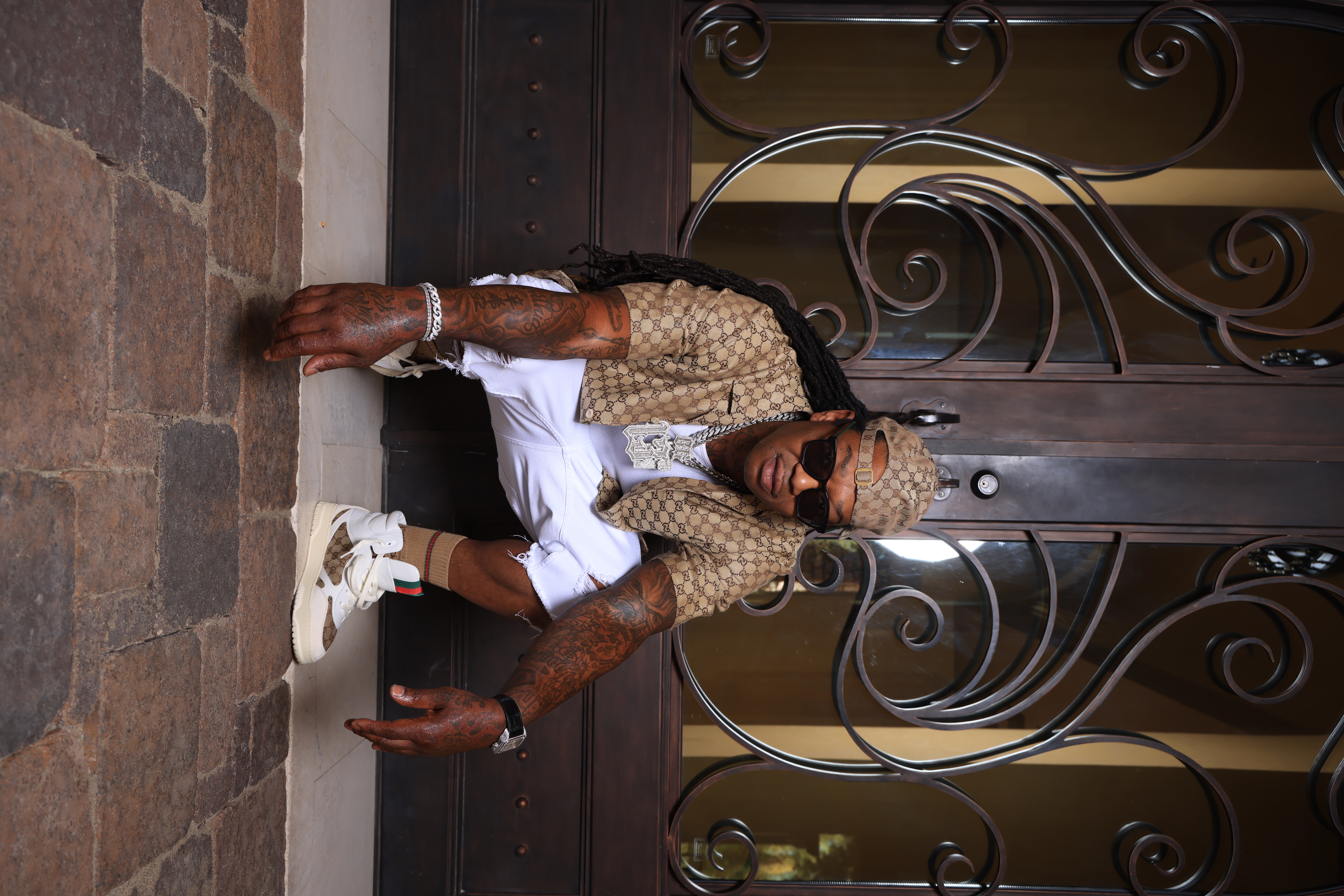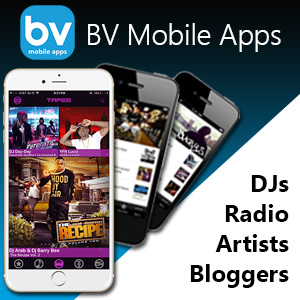B.G. Is Fighting The Same Battle As N.W.A & 2 Live Crew: On "Freedom Of Speech," Censorship & Hot Bo

In the past two decades, Cash Money built an unprecedented legacy in hip-hop, one that housed quintessential New Orleans pillars like the Hot Boys, and carried to global domination with the inclusion of artists like Drake and Nicki Minaj under Lil Wayne's tutelage. Only in recent years have we seen the Cash Money and Young Money umbrella on stage together. In 2022, Drake hosted a Young Money Reunion concert in Toronto for OVO Fest, bringing Lil Wayne and Nicki Minaj, along with the Big Tymers, on stage to revel in the glories of the 2000s. But as of late, the stars have aligned and allowed the Hot Boys-Juvenile, Lil Wayne, B.G., and Turk-to finally perform together.
B.G.'s incarceration became a major roadblock in this journey. In 2012, he received a 14-year sentence, per the Guardian, after pleading guilty to illegally possessing a firearm and obstructing justice. After 11 long years, he was transferred to a halfway house and kicked off a prolific run that persists until this day. However, it didn't go without hurdles, especially as it pertained to his freedom of expression.
Freedom of speech is a delicate concept these days-not one that is rigidly set in stone as it appears to be on Twitter. And the government's ability to violate that right is more prevalent than ever. Mahmoud Khalil, a pro-Palestinian activist, Columbia student and green card holder, faces deportation after being unlawfully detained by ICE, without a warrant, for advocating against the genocide of the Palestinians at the hands of Israel. Perhaps it's an extreme example, but it highlights the flagrant violations of Constitutional rights that are supposed to be afforded to everybody in America. In the case of B.G., suppressing his freedom of speech became central to his release and ability to continue his career. Even after being released, the U.S. government tried to monitor his words as much as his actions. Currently, he must submit his lyrics to his probation officer before they become public. His collaborative album with Gucci Mane, Choppers & Bricks, and a song with Finesse2Tymes became contentious in court as the government tried to argue that he violated his conditions before the latest ruling.
"It was a lot, man. It was six months that were really stressful, really depressing," he told HotNewHipHop over Zoom. "And it was just me basically fighting for my freedom of speech, you know what I mean? Like, they was trying to control my content, and tell me what I could and couldn't rap about. You know, I didn't feel it. You know, my lawyers didn't feel it. They felt like they were going a little overboard, you know what I mean?"
Hence why his latest album is titled Freedom Of Speech. Accompanied by a documentary that follows B.G.'s journey since his release, it's a raw project that sees the New Orleans MC as aware and conscientious of the circumstances of this project, without compromising the rugged storytelling that resonated from Louisiana and beyond. Through the album, he dissects his own case while paralleling his journey to Lil Durk and Young Thug, who've similarly had their lyrics under a microscope in a court of law.
"Do I think censorship is more now than when I first started? Yeah, absolutely," he said. "Man, but at the same time, NWA and 2 Live Crew, they fought this fight 30 years ago, man. You know, fighting for the freedom of speech. So you know rap's still on trial. You see how they use a C-Murder rap song against him in court. They use Mac raps against him in court. You see what just happened with the YSL trial. You see what's going on with Lil Durk right now. I mean, you know, I'm pretty sure there are a bunch of other artists that the government or the state or prosecutors have taken their lyrics and raps and used them against them in the court of law. Man, and I just feel as though that's not fair."
Following the release of Freedom Of Speech, we caught up with B.G. to discuss the project and the hurdles he faced during its creative process, the reunion with the Hot Boys, and how his own fight for free expression parallels those of N.W.A and 2 Live Crew. Watch the interview below, followed by the full unabridged conversation underneath the YouTube video.
Editor's Note: This interview has been edited and condensed for clarity.
Read More: Is Young Thug's Plea Deal A Trap To Send Him Back To Prison?
HotNewHipHop: This is your first album since your release. Tell me about how Freedom Of Speech came about.
B.G.: I mean, basically, it was everything that I had to go through to be able to rap again, or to pursue my career again, man. Because I had ran into a situation where the feds had put a gag order on me and [they] didn't want me doing nothing pertaining to hip-hop or nothing pertaining to entertainment that I could make money off of, man. I had to get permission from the court before I entered back into self-employment. And they felt like me being a rapper was me being self-employed.
So while I was in the halfway house, I had gotten permission from the director of the halfway house, my case manager, and all that, to go to the studio, record, shoot videos, and do an album with Gucci Mane. I dropped the album with Gucci Mane but then, once I got out of the halfway house and started being governed by the United States Probation Office, they had put a warrant out for my arrest and tried to say that album that I did with Gucci Mane, and the feature that I did with Finesse2Tymes and a couple other people, was a violation of my probation. So, I had to go to court and fight that.
It was a lot, man. It was six months that were really stressful, really depressing. And it was just me basically fighting for my freedom of speech, you know what I mean? Like, they was trying to control my content, and tell me what I could and couldn't rap about. You know, I didn't feel it. You know, my lawyers didn't feel it. They felt like they were going a little overboard, you know what I mean? That's basically what the title came from.
How did you manage your mental health during this period?
Man, I was seeing a psychiatrist. Man, I was gonna sit on that couch. Just talking to somebody outside of my immediate people, and just outside of my friends and things of that nature, man. So, yeah, that's basically how it's maintained. Then, I was still in the studio recording while they had the gag order on me. It didn't stop me from just going in there and working, because that's why I'm most comfortable at, in the studio and just getting my thoughts out and creating good music or whatever. And I always believed that it was gonna work out in my favor.
How did Freedom Of Speech differ from Choppers & Bricks with Gucci Mane, from a legal and creative standpoint?
You know, from a creative standpoint and a legal standpoint, like, I was more Gizzle on the album I did with Gucci. It was more raw, it was more rough, it was more rugged. It was, you know, me just spitting them raw verses that that my fans are used to hearing from me without, in the back of my head, knowing and thinking that them people are listening, they are monitoring, and if it's anything that I say out of line, they gonna try to lock me up for it.
The process of recording the Gucci project, I was just more free. But, when it came down to the Freedom Of Speech album, even though the judge ruled in my favor and said that it was a violation of my constitutional rights, she still gave the prosecutor-she still ordered me to turn over my lyrics to my probation officer before I made them available to the public, and my probation officer turns them over to the court so they could put them on record. They ain't got to approve them or nothing but if the prosecutor feels I'm going too hard, or I'm name dropping, or if I'm talking about current and active cases, or current and active violence and sh*t that's going on in the streets, then they could file a motion and bring me back in front of the judge and ask her to violate me and we'll just, you know, have to fight it out again or whatever.
On this album, I'm just more aware, man, and just more conscious of what I say and how I say it. It's a lot of things that I want to get off my chest, and want to create stories about, just talk about from what I seen and been through in the hood and things my homies have been through. Just storytelling, man, from just being a product of my environment, or whatever, like that. But, yeah, you know that the people listening, man, so, I gotta tiptoe around it a little bit. You know, the album is still super hard. It's still B.G., but you know, it's B.G. knowing that them people listening too, right? I did everything to make my fans happy and not try to poke the bear at the same time.
Just listening to it, it's politically charged in the sense of your perspective and everything you've gone through, right? But with the term freedom of speech, these days, we hear a lot of people talk about it in the sense of cancel culture and social media restricting free speech, but you've actually faced government censorship. Do you think censorship is worse now than when you first started in the music industry?
Do I think censorship is more now than when I first started? Yeah, absolutely. Man, absolutely, it is. Man, but at the same time, NWA and 2 Live Crew, they fought this fight 30 years ago, man. You know, fighting for the freedom of speech. So you know rap's still on trial. You see how they use a C-Murder rap song against him in court. They use Mac raps against him in court. You see what just happened with the YSL trial. You see what's going on with Lil Durk right now. I mean, you know, I'm pretty sure there are a bunch of other artists that the government or the state or prosecutors have taken their lyrics and raps and used them against them in the court of law. Man, and I just feel as though that's not fair.
You know, at the end of the day, it's only entertainment. You ain't got to like the music, but at the end of the day, there's a demographic that does. When I talked to my prosecutor, I told him, I'm like, "Man, at the end of the day, the people, they give us these big budgets and pay us all this money to record these albums and put this out. The people who make the lion's share the money, they look just like you."
You mentioned 2 Live Crew and NWA. Could you elaborate a little further about how you feel you're fighting the same fight that they were fighting 30 years ago?
I mean, absolutely, hell yeah. People here put a muzzle on me, man. They literally were telling me they didn't want me rapping about snitches. You know, they didn't want me rapping about guns. They didn't want me glorifying violence, basically, trying to turn me into a gospel rapper. I ain't the first one to rap about it, I ain't gonna be the last. But how you gonna tell me what I can and can't rap about? Like, that's not right.
They was trying to play A&R with my project, man, and that just wasn't sitting well with me, man. So, you know, I had to fight it, man, and it worked out in my favor, man. And I'm glad I did because [there's] gonna be somebody that's coming behind me that might find themselves in that same situation. They could use my cases as a reference, or use them to come from under it.
You mentioned Lil Durk and Young Thug earlier, and give them a shout-out on the album, too. Was that your way of reflecting your own experience with government scrutiny and hip-hop to a younger generation who may or may not know your impact or story?
Yeah, that's a fact. I'm a fan of both of them, right? I don't wish that on nobody. Being an OG in the game, and being a fan of theirs, and understanding firsthand what they're going through and went through. I just want to make sure I give them a shout out, man, and let them know I'm gonna stand with them. However, whatever.
Read More: BG Explains How He "Toned Down" His New Album, "Freedom Of Speech," To Avoid Legal Trouble
You said the government was playing A&R on your project, and said that Boosie was an artist you tried to work with, but there were issues with your probation officer. Were there any other artists you weren't able to work with because of that?
There weren't any artists that I wasn't able to work with because of my situation. I mean, the judge told me if I want to work with artists and they're also convicted felons, I just have to let my probation officer know beforehand, right? If it's work-related, then she's cool with it. She ain't got no problem with it. But you know, if I'm just hanging with convicted felons, and just out there thuggin' or doing shit I ain't supposed to with known convicted felons in the hip hop community, then, yeah, she ain't with all that, man. But if it's work-related, it's cool.
In your documentary, you mentioned that everything you did before your incarceration withstood the test of time. But looking back at the Hot Boys era, what do you think made that sound so timeless that in 2025, it's still relevant?
It was just good quality music. That's what made everything that we've done, like, pass the test of time, man. It was really, really good quality street music. It was different, it was authentic, it was original. We weren't trying to sound like nobody, we set our own trends. We pretty much defined an era with this sh*t. But you know, it all come back to, you know, that shit just being authentic, and it was hot.
How do you feel about the new generation of rappers taking on what you did and taking that influence and building on it even further, and ushering in this new era of southern rap, 20 years later, from when you first emerged?
I mean, I love it. I mean, I've always embraced change, you know what I mean? And always support the culture, and who's up next. So, yeah, man, I'm a hip-hop fan, first and foremost. You know what I'm saying? So, yeah, man, I love what the youngsters are doing. They advance the culture.
What was your response when you first heard Gelo's "Tweaker" and the evident Hot Boys influence on it?
It made me smile, man. I mean, if you ain't got no Hot Boys in your DNA, or no Cash Money in your DNA, then you're really not a hip hop fan. Man, you're really not a hip hop head.
What has the feeling been like reuniting with the Hot Boys after your incarceration and now, going on tour?
I mean, reconnecting with my brothers was a beautiful feeling. Man, it's always love and respect amongst us. At the end of the day we all went through what we went through. You know, we might have had our ups and downs, but at the end of the day, we got rich together. This rap game really changed our lives, saved our lives. We were able to create so many opportunities for so many different people. Like I said, for me, being gone as long as I was gone, and to come home and still be able to sell out arenas with the dudes I came in it with, you know what I'm saying, like, it's a blessing, man.
The post B.G. Is Fighting The Same Battle As N.W.A & 2 Live Crew: On "Freedom Of Speech," Censorship & Hot Boys Reunion appeared first on HotNewHipHop.
via: https://www.hotnewhiphop.com/905562-bg-freedom-of-speech-hot-boys-interview-censorship-lil-durk-hip-hop-news















